-
 Bitcoin
Bitcoin $114400
0.68% -
 Ethereum
Ethereum $3550
2.48% -
 XRP
XRP $3.001
4.99% -
 Tether USDt
Tether USDt $0.9999
0.01% -
 BNB
BNB $757.6
1.46% -
 Solana
Solana $162.9
1.07% -
 USDC
USDC $0.9998
0.00% -
 TRON
TRON $0.3294
0.91% -
 Dogecoin
Dogecoin $0.2015
2.46% -
 Cardano
Cardano $0.7379
2.01% -
 Stellar
Stellar $0.4141
8.83% -
 Hyperliquid
Hyperliquid $37.83
-1.91% -
 Sui
Sui $3.454
0.76% -
 Chainlink
Chainlink $16.62
3.53% -
 Bitcoin Cash
Bitcoin Cash $554.6
2.84% -
 Hedera
Hedera $0.2486
3.91% -
 Ethena USDe
Ethena USDe $1.001
0.00% -
 Avalanche
Avalanche $21.95
3.34% -
 Toncoin
Toncoin $3.563
-2.85% -
 Litecoin
Litecoin $112.7
2.65% -
 UNUS SED LEO
UNUS SED LEO $8.977
0.13% -
 Shiba Inu
Shiba Inu $0.00001232
1.85% -
 Uniswap
Uniswap $9.319
2.93% -
 Polkadot
Polkadot $3.632
1.38% -
 Monero
Monero $307.2
2.36% -
 Dai
Dai $0.9997
-0.03% -
 Bitget Token
Bitget Token $4.340
0.91% -
 Pepe
Pepe $0.00001048
1.07% -
 Cronos
Cronos $0.1348
3.26% -
 Aave
Aave $261.5
1.93%
How do NFT trading platforms support secondary transactions and resales of artworks?
NFT trading platforms use smart contracts to automate ownership transfers upon payment, providing interfaces for browsing, listing, and bidding on resalable NFTs. Royalty mechanisms often built into these contracts ensure creators receive a percentage of secondary sales.
Mar 15, 2025 at 02:05 pm
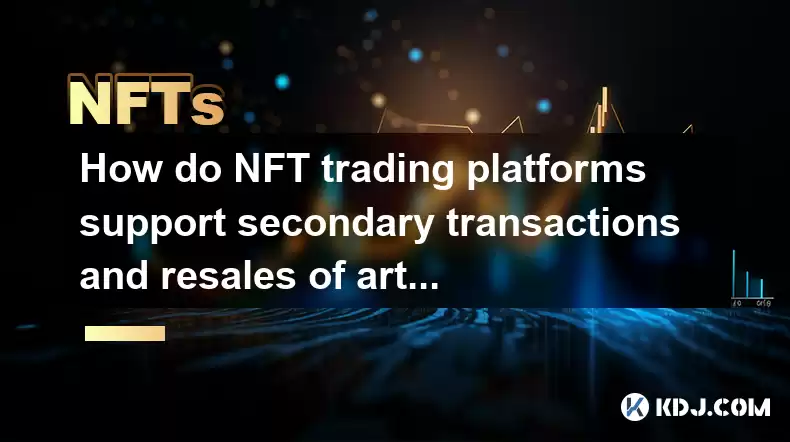
Key Points:
- NFT trading platforms facilitate secondary transactions through smart contracts embedded within each NFT.
- These smart contracts automatically execute the transfer of ownership upon successful payment.
- Platforms provide interfaces for users to list, browse, and bid on NFTs available for resale.
- Royalty mechanisms, often built into smart contracts, allow creators to receive a percentage of each secondary sale.
- Different platforms employ varying methods for verifying authenticity and provenance of NFTs.
How do NFT trading platforms support secondary transactions and resales of artworks?
NFT trading platforms are built to support the secondary market for digital artworks and other NFT assets. This functionality is largely enabled by the underlying blockchain technology and the smart contracts that govern each NFT. When an NFT is minted, a unique smart contract is created alongside it. This contract contains the details of the artwork, ownership information, and crucially, the rules governing its transfer.
The process of reselling an NFT typically begins with the original owner listing the NFT on a marketplace. This involves setting a price (fixed or auction-style) and providing any relevant details. The platform then uses its interface to display the NFT for other users to browse and potentially purchase.
The actual transfer of ownership happens through the smart contract. When a buyer accepts the listed price and completes the transaction (usually involving cryptocurrency), the smart contract automatically updates the ownership record on the blockchain. This process is transparent and verifiable, ensuring that the transfer is secure and legitimate.
Many platforms incorporate royalty mechanisms into the smart contracts. This means that a percentage of each subsequent sale is automatically paid to the original creator of the NFT. This incentivizes creators and contributes to the long-term value of their work. The specific percentage varies depending on the platform and the individual NFT's settings.
The verification of authenticity and provenance is also a crucial aspect of secondary NFT transactions. Platforms employ various methods to achieve this. Some use blockchain's immutable record-keeping to track the NFT's history, demonstrating its lineage from the original minting. Others might utilize third-party verification services to authenticate the artwork's digital signature or metadata.
The ease of secondary transactions is a significant factor in the appeal of NFTs. Unlike physical artworks, which require physical transfer and verification, NFTs can be easily traded globally with minimal friction. This liquidity significantly impacts the value proposition of owning an NFT, especially for collectors and investors.
Different platforms employ different strategies for handling fees. Some charge a percentage of each transaction, while others might have flat listing fees or subscription models. Understanding these fee structures is crucial for both buyers and sellers to effectively manage their costs.
The user experience varies across different platforms. Some platforms are highly specialized, focusing on particular types of NFTs or artist communities. Others are broader marketplaces offering a wide range of digital assets. Choosing a platform depends on the specific needs and preferences of the user.
The legal aspects surrounding NFT transactions are still evolving. Issues relating to intellectual property rights, copyright, and the legal status of digital assets are constantly being addressed. Users should be aware of the potential legal complexities involved before engaging in NFT transactions.
The technological infrastructure supporting NFT trading platforms is constantly improving. Scalability issues, transaction fees, and user interface design are all areas of ongoing development. As the technology matures, we can expect even more efficient and user-friendly platforms to emerge.
Common Questions and Answers:
Q: What happens if the original creator of an NFT disappears or loses access to their wallet?
A: The smart contract governing the NFT remains functional, even if the creator is unavailable. Secondary transactions can still occur, and royalties, if programmed into the contract, will still be distributed according to the terms outlined. However, the creator would lose the ability to update or modify the NFT's metadata or any future associated royalties.
Q: How are NFTs prevented from being copied or duplicated?
A: NFTs are not inherently copy-proof; the digital artwork itself can be copied. However, only one token represents the true ownership recorded on the blockchain. Copies lack the unique token ID and ownership information stored on the blockchain. This makes the original NFT the only verifiable, legitimate version.
Q: Are all NFT marketplaces the same?
A: No, NFT marketplaces differ significantly in their fees, features, supported blockchains, and the types of NFTs they host. Some specialize in art, others in gaming items, or collectibles. Choosing the right platform depends on your specific needs and preferences.
Q: What are the risks involved in secondary NFT trading?
A: Risks include scams, rug pulls (where developers abandon a project), market volatility, and legal uncertainties surrounding ownership and intellectual property. Thorough research and caution are essential when participating in NFT trading.
Q: How is the authenticity of an NFT verified on secondary markets?
A: Authenticity is primarily verified through the NFT's unique token ID on the blockchain and its provenance, which is often recorded as a part of the NFT’s metadata. Reputable marketplaces also play a role in ensuring the legitimacy of the NFTs listed on their platforms. However, it's crucial to do your own due diligence before purchasing an NFT.
Disclaimer:info@kdj.com
The information provided is not trading advice. kdj.com does not assume any responsibility for any investments made based on the information provided in this article. Cryptocurrencies are highly volatile and it is highly recommended that you invest with caution after thorough research!
If you believe that the content used on this website infringes your copyright, please contact us immediately (info@kdj.com) and we will delete it promptly.
- Cryptocurrency, Altcoins, and Profit Potential: Navigating the Wild West
- 2025-08-04 14:50:11
- Blue Gold & Crypto: Investing Disruption in Precious Metals
- 2025-08-04 14:30:11
- Japan, Metaplanet, and Bitcoin Acquisition: A New Era of Corporate Treasury?
- 2025-08-04 14:30:11
- Coinbase's Buy Rating & Bitcoin's Bold Future: A Canaccord Genuity Perspective
- 2025-08-04 14:50:11
- Coinbase's Buy Rating Maintained by Rosenblatt Securities: A Deep Dive
- 2025-08-04 14:55:11
- Cryptos, Strategic Choices, High Returns: Navigating the Meme Coin Mania
- 2025-08-04 14:55:11
Related knowledge
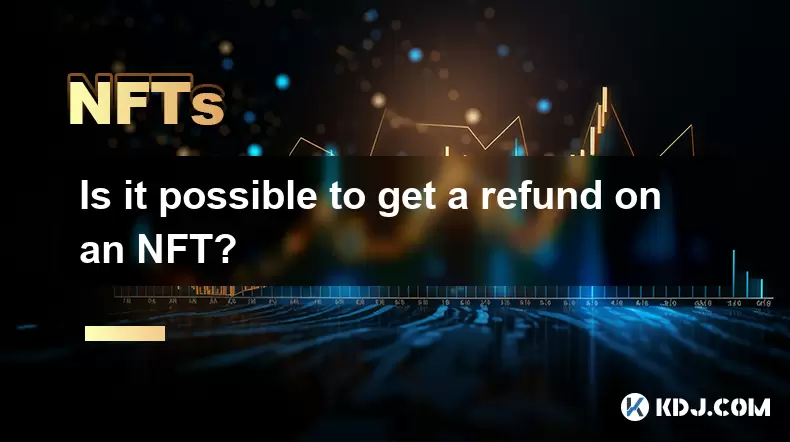
Is it possible to get a refund on an NFT?
Jul 21,2025 at 08:35pm
Understanding NFT Transactions and RefundsWhen you purchase an NFT (Non-Fungible Token), the transaction is typically recorded on a blockchain, making...
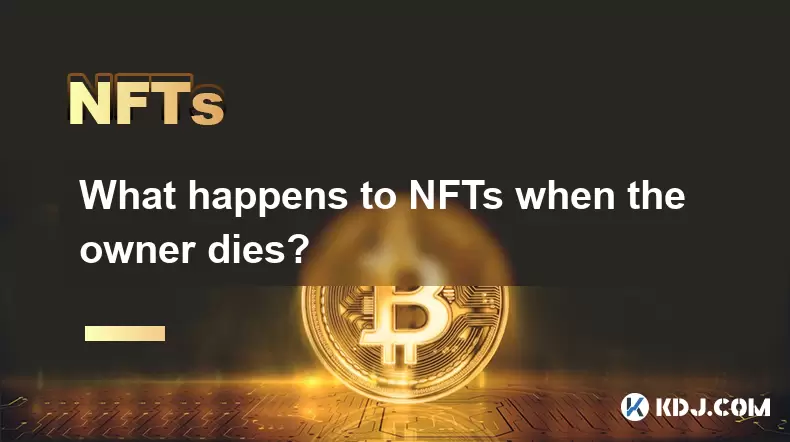
What happens to NFTs when the owner dies?
Jul 22,2025 at 02:43pm
Legal Ownership and Digital AssetsWhen an individual owns NFTs, the question of what happens to these assets upon their death is a pressing one. NFTs ...
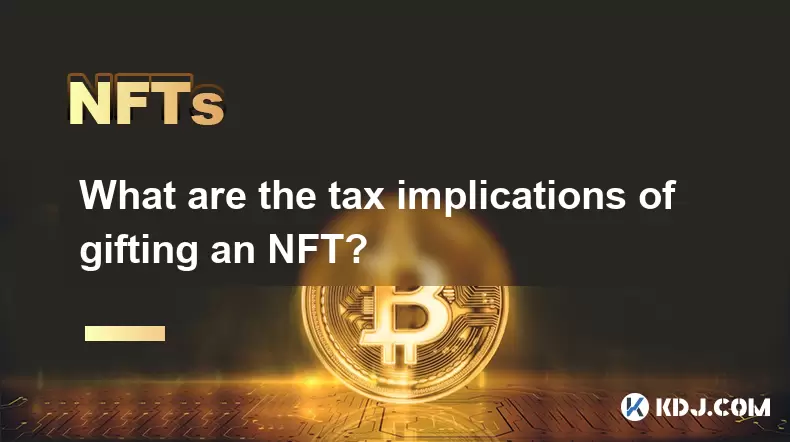
What are the tax implications of gifting an NFT?
Jul 19,2025 at 04:21am
Understanding the Basics of NFT GiftingGifting a Non-Fungible Token (NFT) involves transferring ownership from one individual to another without recei...
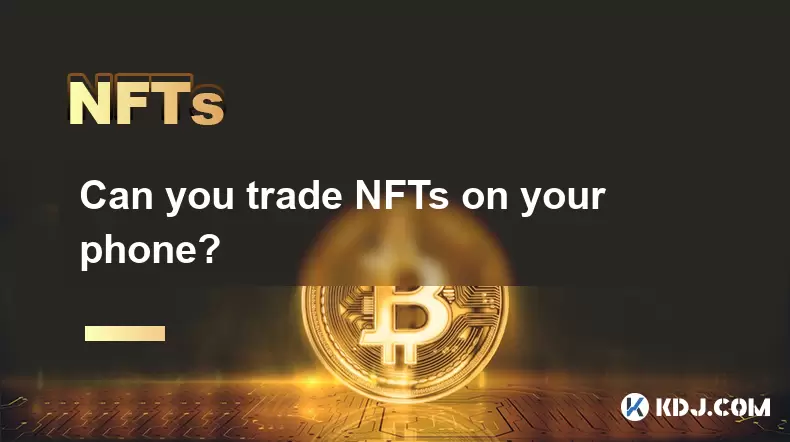
Can you trade NFTs on your phone?
Jul 18,2025 at 04:29am
Trading NFTs on Mobile DevicesYes, you can trade NFTs on your phone, and the process has become increasingly streamlined thanks to a variety of mobile...
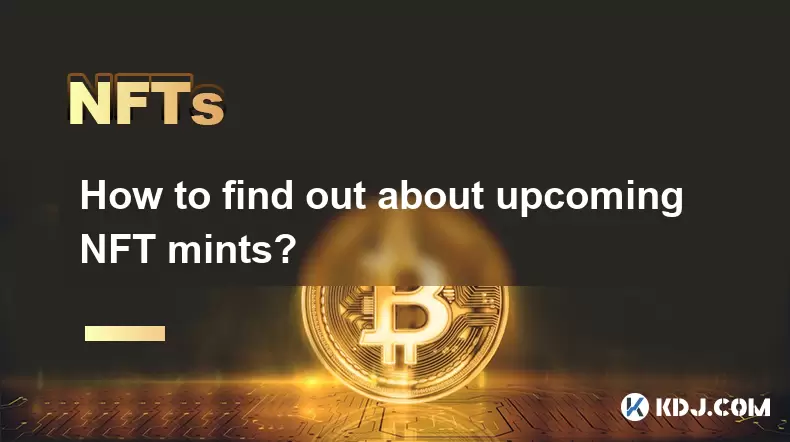
How to find out about upcoming NFT mints?
Jul 18,2025 at 11:50am
Exploring NFT Minting OpportunitiesUnderstanding the landscape of upcoming NFT mints is crucial for collectors, investors, and creators who wish to st...
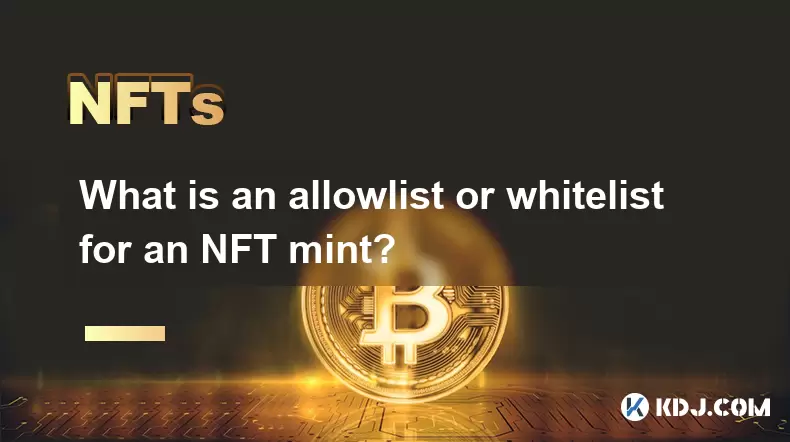
What is an allowlist or whitelist for an NFT mint?
Jul 20,2025 at 07:14pm
Understanding the Concept of an Allowlist for NFT MintingAn allowlist, also commonly referred to as a whitelist, is a mechanism used in the NFT mintin...

Is it possible to get a refund on an NFT?
Jul 21,2025 at 08:35pm
Understanding NFT Transactions and RefundsWhen you purchase an NFT (Non-Fungible Token), the transaction is typically recorded on a blockchain, making...

What happens to NFTs when the owner dies?
Jul 22,2025 at 02:43pm
Legal Ownership and Digital AssetsWhen an individual owns NFTs, the question of what happens to these assets upon their death is a pressing one. NFTs ...

What are the tax implications of gifting an NFT?
Jul 19,2025 at 04:21am
Understanding the Basics of NFT GiftingGifting a Non-Fungible Token (NFT) involves transferring ownership from one individual to another without recei...

Can you trade NFTs on your phone?
Jul 18,2025 at 04:29am
Trading NFTs on Mobile DevicesYes, you can trade NFTs on your phone, and the process has become increasingly streamlined thanks to a variety of mobile...

How to find out about upcoming NFT mints?
Jul 18,2025 at 11:50am
Exploring NFT Minting OpportunitiesUnderstanding the landscape of upcoming NFT mints is crucial for collectors, investors, and creators who wish to st...

What is an allowlist or whitelist for an NFT mint?
Jul 20,2025 at 07:14pm
Understanding the Concept of an Allowlist for NFT MintingAn allowlist, also commonly referred to as a whitelist, is a mechanism used in the NFT mintin...
See all articles

























































































